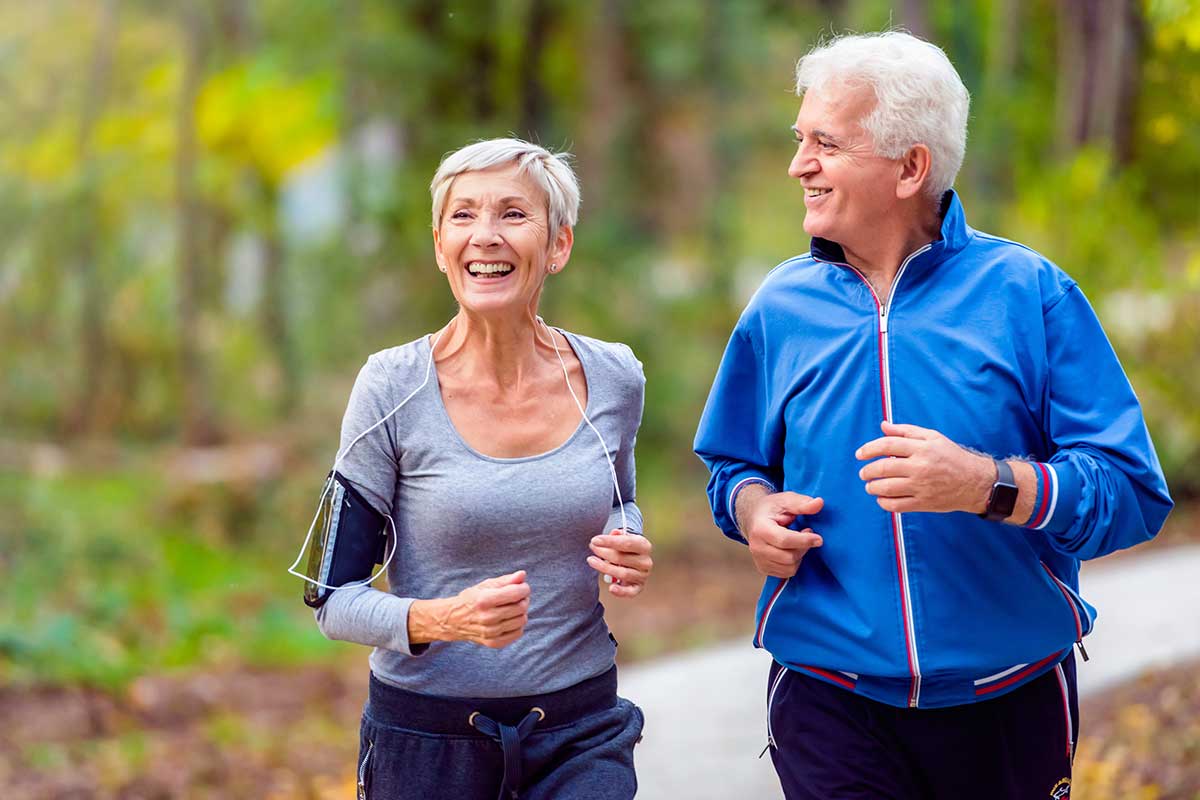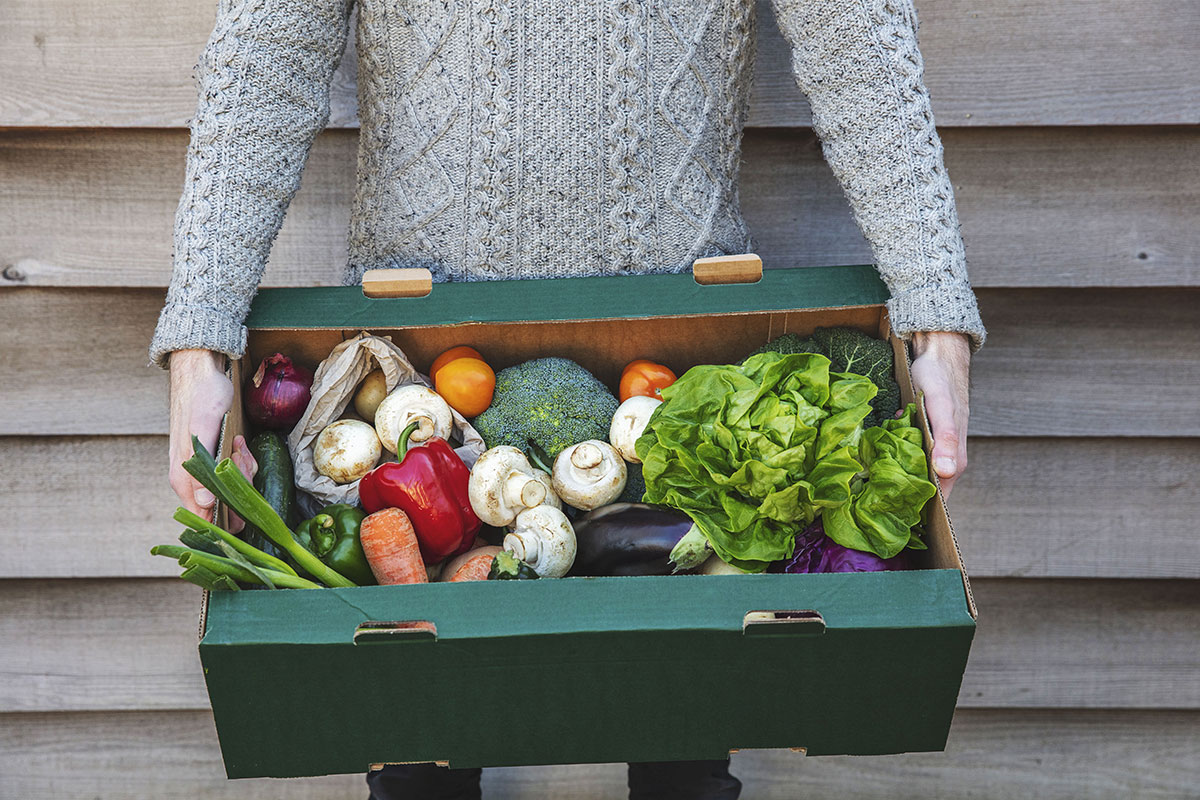
From taking advantage of your surroundings to staying connected with loved ones, there’s a lot you can do to put yourself first right now. Read on for a few out-of-the-box tips to help you stay healthy all summer long and beyond.
Seek out Farm-Fresh Food
Summer is the perfect time to maintain a nutritious, healthy diet, as the majority of fruit and vegetables of the region are at their ripest in the warmer months, according to the United States Department of Agriculture. Plus, per U.S. dietary guidelines, it’s important to consume about 1 to 2 cups of fruit and between 2.5 cups of vegetables per day. A diet rich in fruits and vegetables can lower blood pressure, reduce the risk of stroke and heart disease, prevent some types of cancer, lower risk of eye and digestive problems and even have a positive effect on blood sugar, keeping appetite in check, according to a recent study from Harvard University.
This summer, you may also want to consider purchasing organic produce. While the evidence of health benefits on humans isn’t strong enough yet, there is data that suggests buying and consuming organic produce can help the world around you. According to HelpGuide, a nonprofit mental health and wellness website, organic produce contain fewer pesticides and are often fresher due to a lack of preservatives. Plus, organic farming is better for the environment, as organically raised animals are not given antibiotics, growth hormones or fed animal byproducts.
Lucky for you, it’s easy to find fresh, organic produce in NoVA right now, as many farmers markets have launched at-home deliveries and centrally located pickup locations for all. Plus, many local markets also offer products from locally owned businesses that can benefit your mental health, such as soothing skin-care creams, soaps, handmade journals and more. For those who don’t know where to start, we recommend heading to your county’s online Parks and Recreation Department, as the majority of seasonal, county-wide markets opened in May. From there, you’ll be able to navigate the best practices for getting freshly picked produce like corn, squash and strawberries from the garden to your kitchen in no time.

Prioritize Mental Health
Thousands of older adults in America live on their own today, whether that be in a neighborhood home or a community space. And, while most of the time having your own space can be great, it can also sometimes be isolating and lonely. With a little time, effort and practice though, putting yourself first can be easy.
There are many ways to avoid feelings of loneliness and isolation, with perhaps the most important one being staying connected with friends, family, community members, or whoever else means the most to you. Through connecting with others, either in person, over the phone or on Zoom, you can ultimately increase your sense of confidence and overall well-being. This summer, make an effort to set up daily calls with close friends or family, keeping the time consistent. This way, the consistency will give you something to look forward to, ensuring you nurture important relationships in your life.
In addition to connecting with others, sleeping well, being mindful and staying positive are three other ways to ensure a strong, emotional well-being. According to HelpGuide, sleep is just as important to your physical and emotional health as it is when you are young, which many older adults don’t realize. A good night’s sleep can help to improve concentration and memory formation, refreshes your immune system and allows your body to repair any cell damage that occurred during the day, research suggests. Plus, finding a consistent sleep schedule is key to taking on each day at your very best mental state. This summer, we also suggest you take advantage of the pauses—the moments of quiet where you can truly think about how you feel in that specific scenario. This will help you focus and envision your current state of well-being, ultimately giving you the chance to change something in your life to better fit your needs.
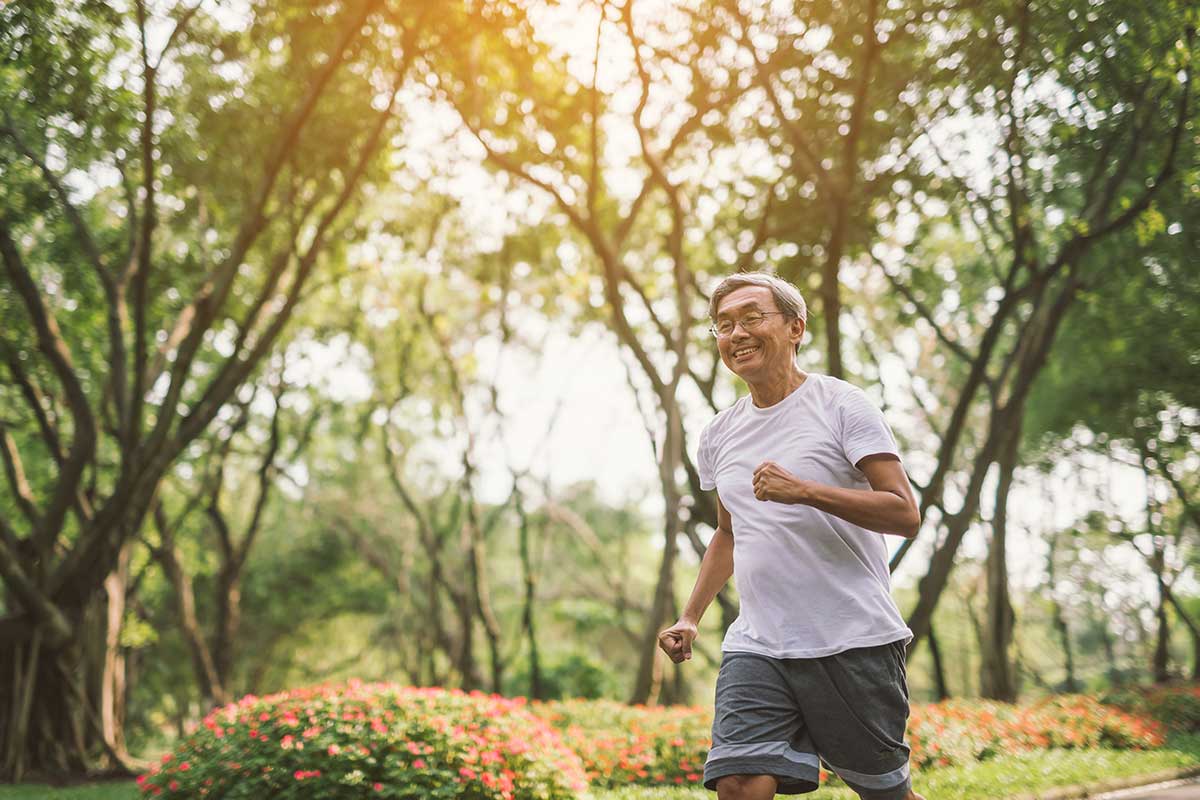
Embrace the Outdoors
The state of Virginia has an average humidity level of 65% to 70% throughout the year, with the early summer season being the most wet, according to weather.com. Yet come midsummer, the humidity in the air is just low enough for you to enjoy the outdoors, whether that be through an afternoon stroll or simply a rest on a park bench.
Most people know that vitamin D is good for your mental health, as it increases serotonin levels, but further research also indicates that the natural vitamin may help protect against common illnesses like osteoporosis, heart disease and even some types of cancer. And, while taking supplemental vitamins is always a good idea, stepping out for some sunshine and air for at least half an hour each day is just as helpful, as well as more enjoyable. What’s more? One recent study from the University of Michigan found a link between nature walks and significantly reduced levels of depression. So, no matter where you reside in NoVA, be sure to embrace your natural surroundings, from local park grounds to a nature hike in the nearby trails, ultimately benefiting your physical and mental health.

Conversation with an Expert
In times of high stress, it’s more important than ever to stay connected with your loved ones, close friends and community members, as social connection has been proven to lower anxiety and depression, regulate emotions and even lead to higher self-esteem and empathy. Josh Hodges, the chief customs officer of Arlington-based nonprofit National Council on Aging, knows the importance of connecting with others firsthand, as he works with thousands of senior centers on a regular basis to find better ways to connect, support and attend to local members. Here, Hodges shares his suggestions for staying connected with those who matter most to you.
In your team’s experience, why is keeping up with mental health so important for seniors?
Your mental health can and does impact all parts of your life. It can directly impact how you feel physically and how you interact with those around you. This is a particularly stressful time and many people are dealing with issues right now, so it’s extremely important to put your mental health first.
Depression, anxiety, addiction and other mental health issues are not a normal part of aging. Left untreated, they can lead to fatigue, illness and even suicide. One in four older adults experiences some mental disorder such as depression, anxiety and dementia. This number is expected to double to 15 million by 2030.
How are senior centers throughout the U.S. assisting older adults in staying connected right now?
To prevent social isolation, senior center professionals are implementing programming ideas that range from low-tech for those without computer capability to online programs. They are mailing newsletters, encouraging letter writing between peers, facilitating face-mask sewing and including sunshine kits in home-delivered meal packages. Some professionals are making wellness calls to check in, some have introduced virtual Zumba, yoga, dance classes, dementia support groups.
Email connections to senior center participants have been made using Facebook and email technology to share updates and resources. They have set up local radio public service announcements and used community TV stations, as well as air programming. There are even classes teaching watercolor, French and Spanish, as well as coffee chats and happy hours. Plus, some are holding conference calls for small groups. At one center, the crocheting group is chatting consistently, and the book group is discussing their most recent book. Phone trees have been developed within senior center groups to encourage wellness checks between participants too.
How can older adults take matters into their own hands and stay connected with others?
This is an individual family/friend connection answer, but setting up a regular time to connect is helpful, as is adding fun things to do. Setting up a regular time to connect is helpful. Some ideas include weekly Zoom or Skype meetings where they can play an online game with grandchildren or friends; simply picking up the phone to call a long-time friend and catch up; and going for a walk around the block with neighbors. There are also thousands of online communities based on interest, and I recommend finding one for your specific hobby. Another idea is to reach out to your place of worship for a list of members who live alone, and start to connect with them.
Do you have any other words of advice for those battling loneliness right now?
What’s happening in the world is huge and can feel overwhelming but we are all in this together. Stay connected with your family, friends and other support networks (faith, hobbies, etc.). Having someone to talk to about your needs and feelings is vital for mental health. Make a commitment to contact at least one person per day for continued social connection through telephone, email, video conference or even social media, if you have internet access.
Is there anything else you think readers should know?
If you feel like you need help, there are some good resources to reach out to, including:
National Alliance for Mental Illness (NAMI): Contact your NAMI affiliate for a list of programs and supports that it offers.
National Suicide Prevention Lifeline: 1-800-273-8255, offering free and confidential support and resources, 24/7.
Disaster Distress Helpline: 1-800-985-5990 or text TalkWithUs to 66746. A toll-free, 24/7, multilingual and confidential crisis support service, available to all U.S. and U.S. territory residents. This service is run by the Substance Abuse and Mental Health Services Administration (SAMHSA).
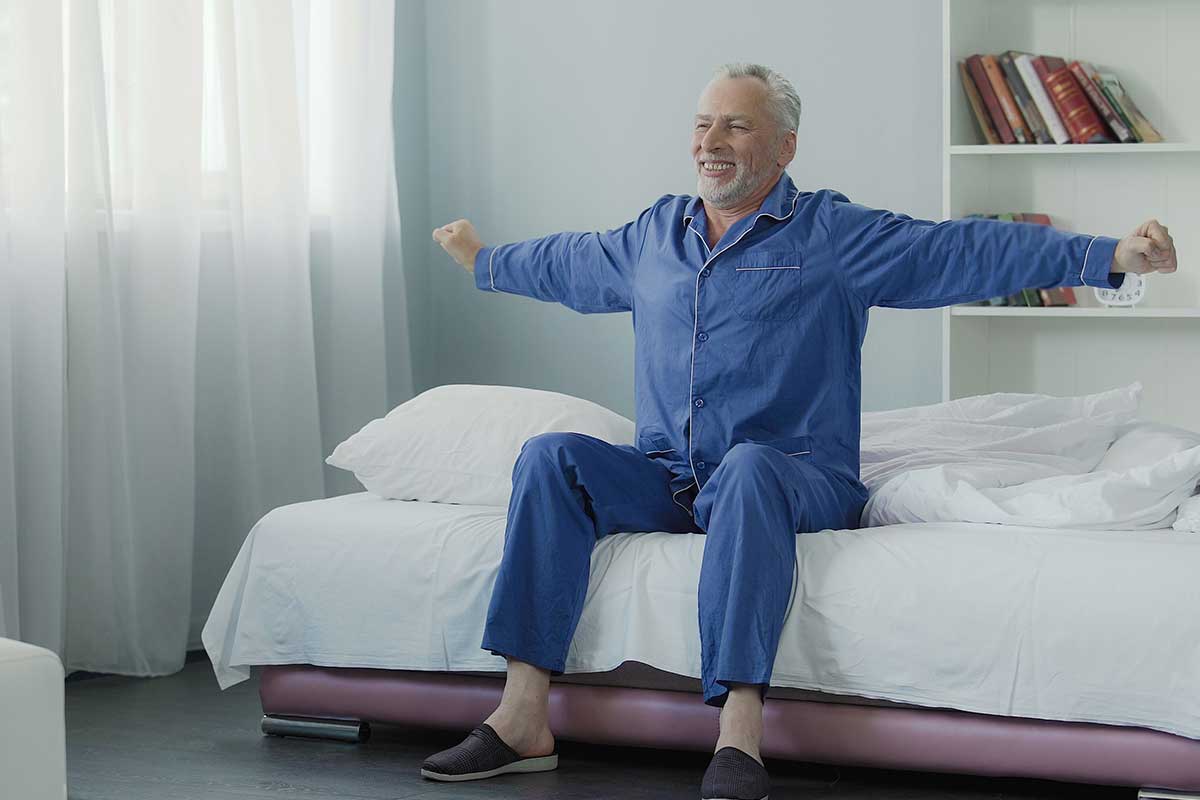
Sweet Dreams
Getting a good night’s sleep doesn’t have to be a struggle, thanks to these tips from the National Institute on Aging.
- Follow a regular sleep schedule, even on weekends or when you’re traveling.
- Avoid napping late in the afternoon, as a nap can keep your body and mind up at night.
- Use low lighting in the evening as you prepare for bed, as this helps your eyes to adjust.
- Avoid eating large meals close to bedtime, as this can keep you awake.
- Develop a nightly bedtime routine to relax you, preparing you for a long night’s rest.
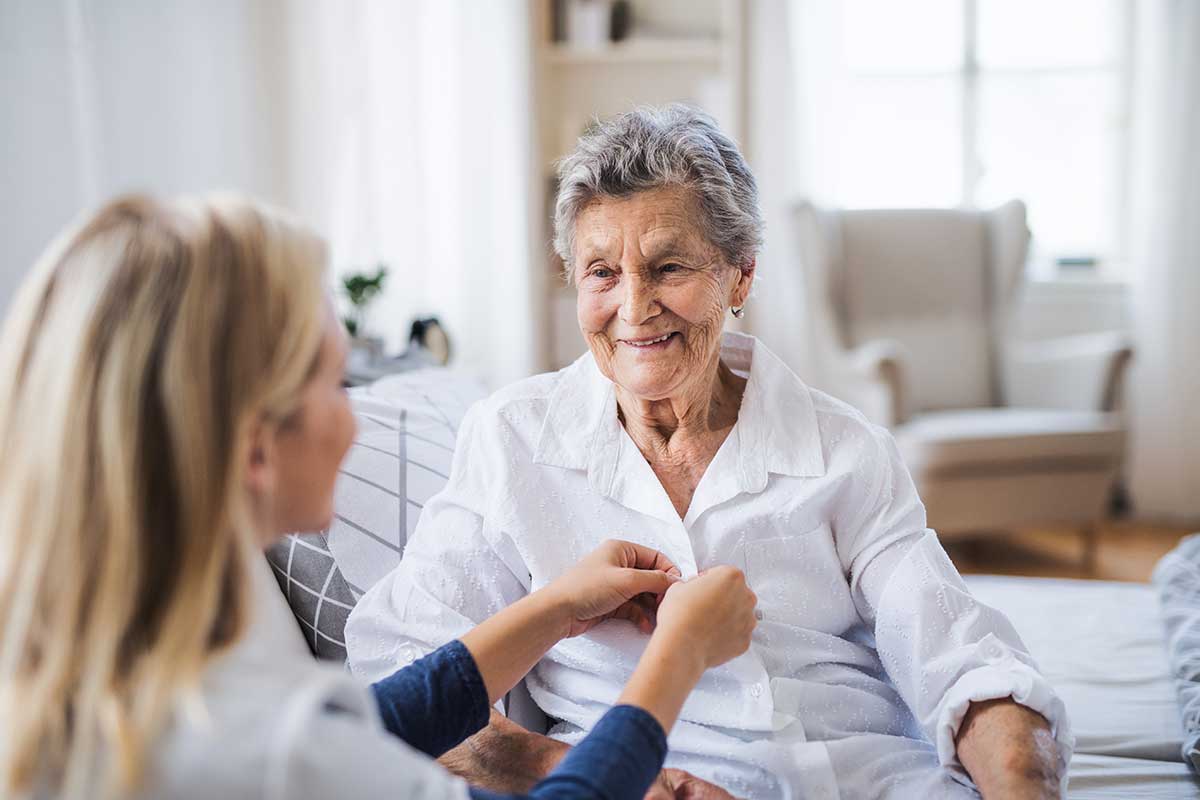
Caring for the Caregivers
According to data from 2011, more than one in six Americans reported being a full-time or part-time caregiver to a family member, loved one, neighbor or friend. Of all the caregivers, ages ranged from young to middle-aged, and a majority of caregiving individuals reported working full time, on top of offering a minimum 15 hours per week of care for the person receiving care.
While older adults need to take care of their mental and physical well-being at all times, it’s important that caregivers remember to do the same right now. Whether you’re a paid employer or a family member trying to care for a loved one, your mental health matters too, and there are many ways to ensure both you and the person you’re caring for stay well throughout the warmer days and beyond. From consistent communication to stints of alone time, here are some best practices for caregivers to consider when tending to an older adult, as well as yourself.
Boost your Immune System
According to research from Harvard Medical School, every part of your body, including your immune system, functions better when protected from environmental assaults and bolstered by healthy-living strategies. When caring for others on a regular basis, it’s easy to forget to do the basic, medically proven activities that will keep you healthy for long periods of time, as well as less prone to illness.
Some key points to remember are to drink water periodically throughout the day, eat the right amount of nutrients, get enough sleep and exercise regularly. If caring for a loved one is causing you to put these essential practices on the back burner, try implementing them into your daily routine alongside that of the person you’re caring for. For example, when practicing simple stretches with the older adult you take care of, participate in the stretches as well. Or, when shopping for fresh food for the person you watch over, purchase a few key items for yourself. Plus, both the caregiver and the care-recipient need to enjoy time outside in the sun. This summer, both you and the care-recipient should make time for daily walks embracing the fresh air and soaking in vitamin D. This way, you both receive the necessary treatment your immune systems (and yourselves!) need to stay healthy and happy.
Engage in Activities you Love
While this may seem simple, those who care for others as a day job tend to forget to make time for the things they really do love and enjoy themselves. One way to counter this is to teach the person you care for your favorite hobby. For example, if you tend to knit in your free time, implement this activity into you and your loved one’s day-to-day routine. That way, you two can bond over a new activity, and also keep your hands agile and your brains stimulated, ultimately bettering your mental and physical health.
When you are alone though, take advantage of that time you have for yourself. Whether you choose to read a novel or would rather participate in yoga practices, how you choose to unwind and refresh is completely up to the individual. While in that moment, be sure to make the very most of it and focus solely on you.
For those Caring from Afar
In stressful situations, the best way to mitigate fear, stay calm and move forward is by communicating with one another. And, when it comes to mental health, no matter your age, sharing how you feel aloud to another individual can really be cathartic and beneficial in keeping you well and happy. This summer, if you’re separated from the ones you love, be sure to make time to call them consistently, set up Zoom conversations or even send handwritten notes. A little conversation can go a long way.
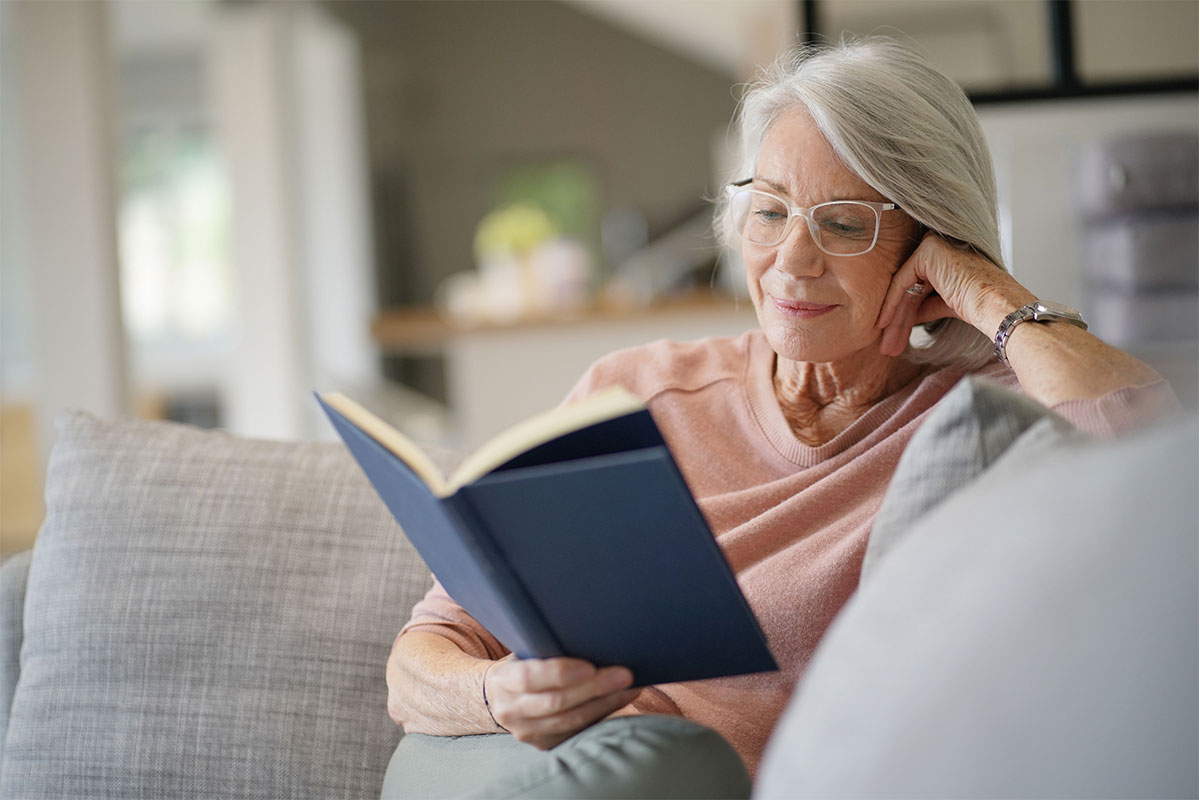
Read On
Better your eyesight and your memory by indulging in these highly anticipated books, all released this summer.
Hollywood Park: A Memoir by Mikel Jollett
Release date: May 22
The Vanishing Half by Brit Bennett
Release date: June 2
Want by Lynn Steger Strong
Release date: July 7
The post originally appeared in our June/July 2020 print issue. For more senior-focused articles sent straight to your inbox, subscribe to our monthly Senior Living newsletter.

